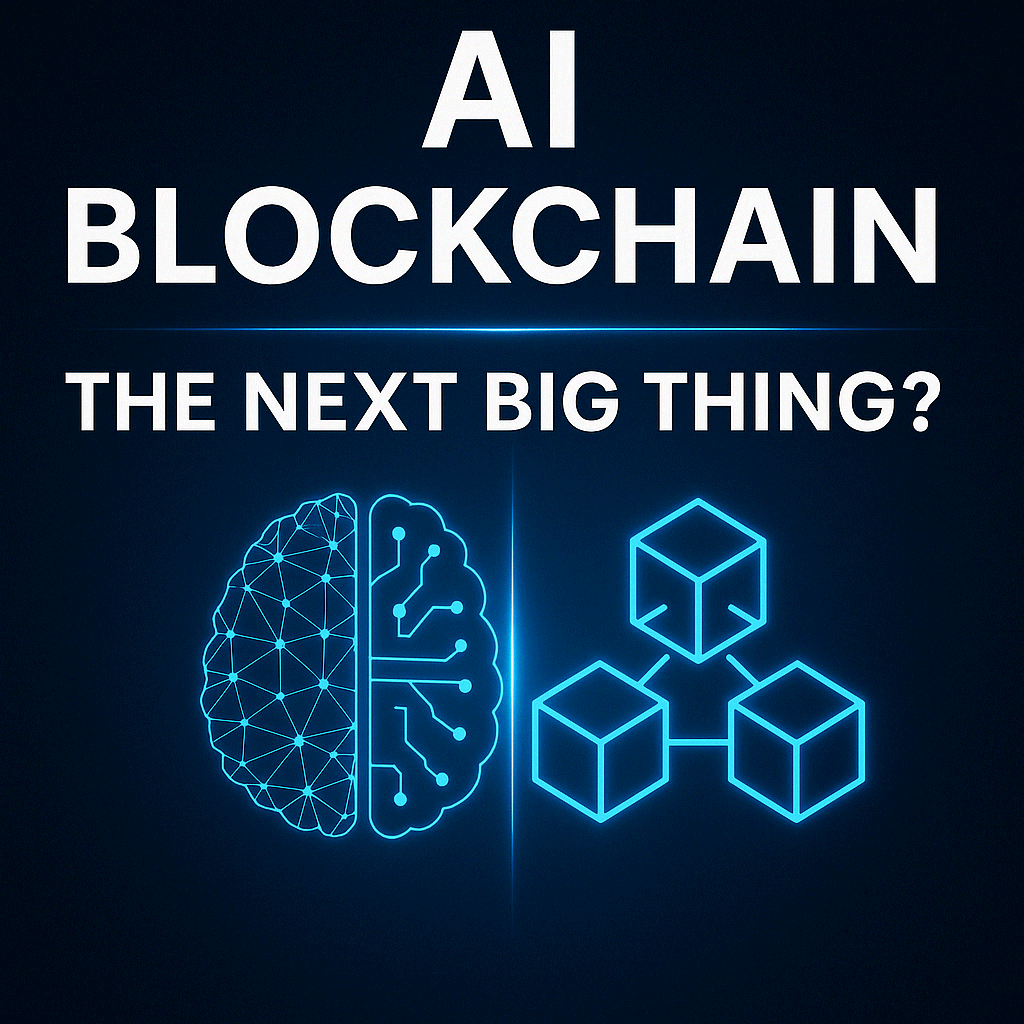Artificial Intelligence (AI) and Blockchain have emerged as two of the most disruptive technologies of the 21st century. While powerful on their own, the intersection of AI and blockchain has the potential to revolutionize how data, automation, and trust function in a decentralized world.
Let’s explore why this convergence matters, how it works, and where it’s already being applied.
Why AI Needs Blockchain
AI systems rely heavily on data. However, much of this data is centralized, opaque, and often difficult to verify. Blockchain offers key features that help AI overcome these limitations:
- Data Provenance: Blockchain ensures the integrity and traceability of data used for training AI models.
- Transparency: Decisions made by AI can be recorded and audited through smart contracts.
- Decentralization: Blockchain enables distributed AI that doesn’t rely on a single point of control.
In short, blockchain can make AI systems more trustworthy and ethical.
Why Blockchain Benefits from AI
Blockchain networks produce vast amounts of transactional and protocol-level data. AI is the perfect tool to extract meaningful patterns from this data and drive smarter automation.
Key benefits include:
- Fraud Detection: AI can identify abnormal behaviors in on-chain activity, helping to prevent scams and hacks.
- Market Prediction: Machine learning models can analyze historical price action, sentiment, and chain activity to forecast market trends.
- Contract Optimization: AI can be used to identify inefficiencies in smart contracts and suggest improvements.
The result is more efficient, adaptive, and intelligent blockchain ecosystems.
Real-World Examples of Convergence
Several projects are already exploring the intersection of AI and blockchain:
- Ocean Protocol – A decentralized data exchange platform that supports AI training with data ownership intact.
- Fetch.ai – A network of autonomous agents that interact economically on the blockchain.
- SingularityNET – A marketplace for decentralized AI services, allowing developers to share and monetize their algorithms.
- Numerai – A hedge fund using crowdsourced AI models and blockchain incentives.
These are early signs of a broader trend where decentralized intelligence becomes a real utility.
Key Benefits of AI-Blockchain Integration
- Data Ownership and Privacy
Users retain control of their data, while still allowing AI to learn from anonymized datasets. - Decentralized Intelligence
No single entity controls the decision-making process, making AI governance more democratic. - Trustless Execution
Smart contracts enforce the logic behind AI behavior, eliminating the need for intermediaries. - Transparency and Accountability
All inputs, outputs, and decisions made by AI agents can be audited on-chain.
Current Challenges
Despite its potential, the convergence of AI and blockchain faces real-world obstacles:
- Scalability: Blockchain networks may not yet handle the processing demands of advanced AI algorithms.
- Security Risks: Both AI and blockchain are targets of adversarial attacks and exploitation.
- Regulatory Uncertainty: As AI becomes more autonomous, legal questions about liability and control arise.
These challenges must be addressed for mass adoption to take place.
Future Outlook
Looking ahead, we can expect AI-enhanced smart contracts, predictive DAOs, AI-powered on-chain governance, and autonomous agents acting across DeFi, logistics, healthcare, and more.
This is not just a technological evolution — it’s a shift in how intelligence and value interact in digital economies.
Developers, investors, and analysts who understand both AI and blockchain will be well-positioned to shape and benefit from the next generation of innovation.
The convergence of AI and blockchain is one of the most promising frontiers in technology today. It represents a future where data is secure, automation is transparent, and intelligence operates without centralized control.
For those willing to explore the intersection now, the opportunity is massive.
Not just to invest, but to help build the infrastructure of tomorrow.

 Bitcoin
Bitcoin  Ethereum
Ethereum  Tether
Tether  XRP
XRP  Solana
Solana  USDC
USDC  Dogecoin
Dogecoin  Cardano
Cardano  TRON
TRON